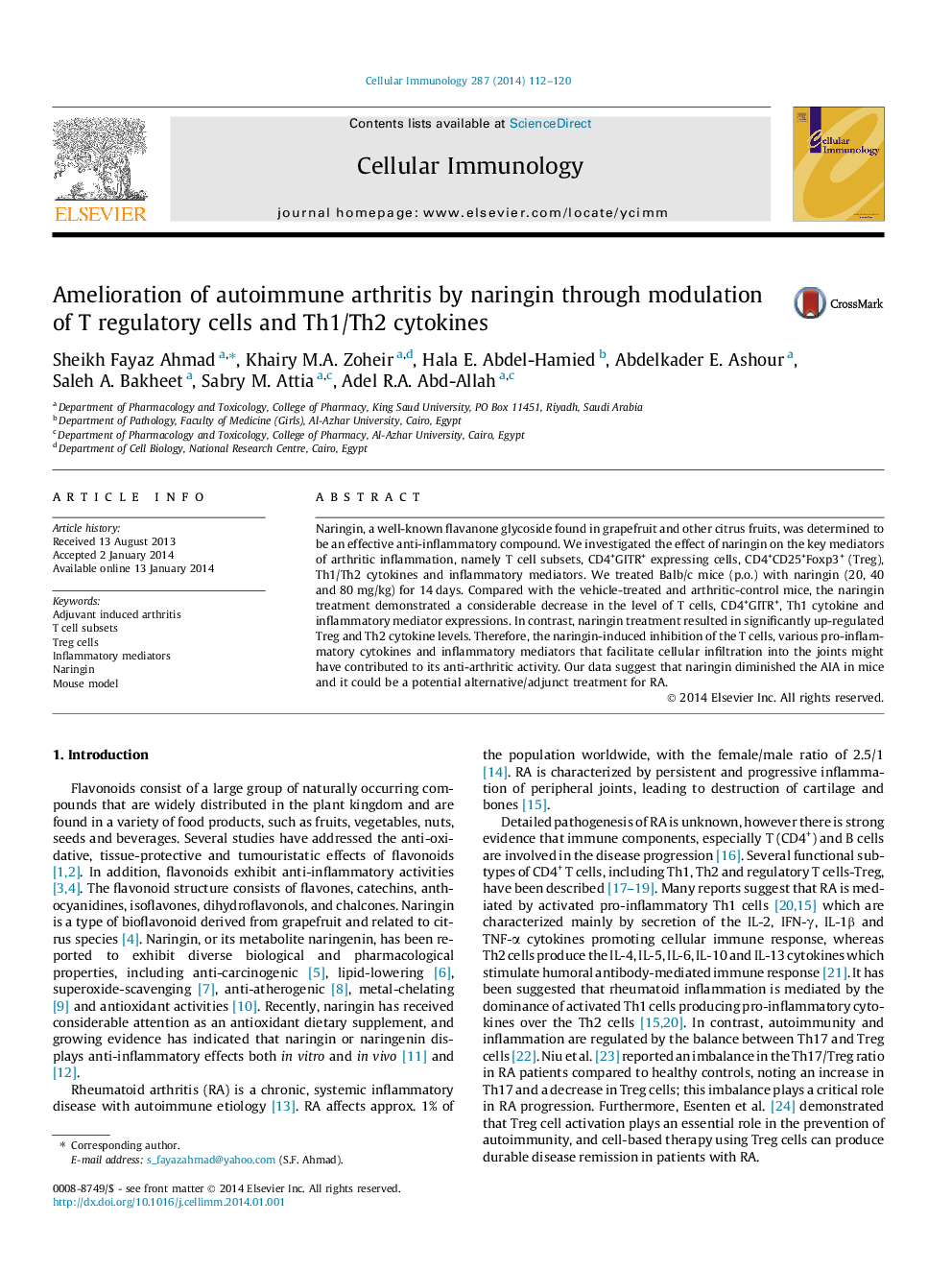| Article ID | Journal | Published Year | Pages | File Type |
|---|---|---|---|---|
| 2167027 | Cellular Immunology | 2014 | 9 Pages |
•We investigated the effect of naringin on the key mediators of arthritic inflammation.•We treated Balb/c mice (p.o.) with naringin (20, 40 and 80 mg/kg) or saline daily for 14 days.•Naringin-treated mice demonstrated a considerable decrease in the level of T cell subsets.•Naringin treatment resulted in significantly upregulated Treg and Th2 cytokine levels.•Naringin-induced inhibition of the various pro-inflammatory and inflammatory mediators.
Naringin, a well-known flavanone glycoside found in grapefruit and other citrus fruits, was determined to be an effective anti-inflammatory compound. We investigated the effect of naringin on the key mediators of arthritic inflammation, namely T cell subsets, CD4+GITR+ expressing cells, CD4+CD25+Foxp3+ (Treg), Th1/Th2 cytokines and inflammatory mediators. We treated Balb/c mice (p.o.) with naringin (20, 40 and 80 mg/kg) for 14 days. Compared with the vehicle-treated and arthritic-control mice, the naringin treatment demonstrated a considerable decrease in the level of T cells, CD4+GITR+, Th1 cytokine and inflammatory mediator expressions. In contrast, naringin treatment resulted in significantly up-regulated Treg and Th2 cytokine levels. Therefore, the naringin-induced inhibition of the T cells, various pro-inflammatory cytokines and inflammatory mediators that facilitate cellular infiltration into the joints might have contributed to its anti-arthritic activity. Our data suggest that naringin diminished the AIA in mice and it could be a potential alternative/adjunct treatment for RA.
